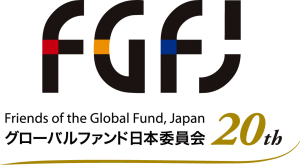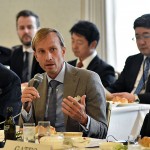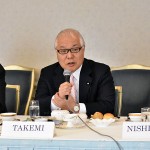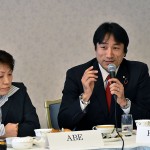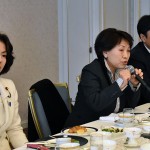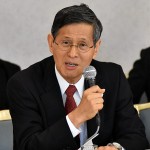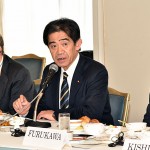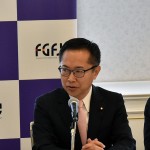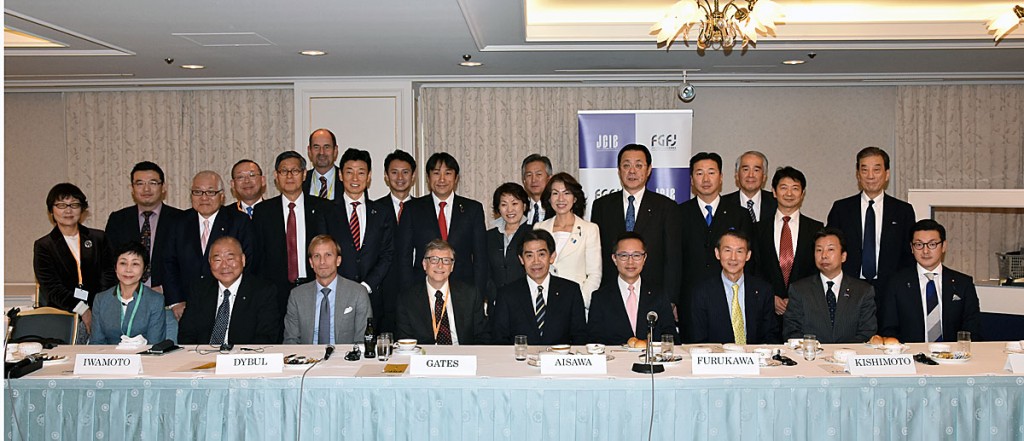
Bill Gates, co-chair of the Bill & Melinda Gates Foundation, met with 14 Diet members of the Friends of the Global Fund, Japan (FGFJ), Diet Task Force to discuss the latest accomplishments of the Global Fund and how Japan can play an even greater leadership role in the battle against the three deadly diseases. They were joined by 11 members of the FGFJ Board of Advisors, as well as Global Fund Executive Director Mark Dybul, and other global health leaders. Gates and Dybul were in Japan to attend the Global Fund’s 5th replenishment preparatory meeting and JCIE’s conference on Universal Health Coverage.
More leadership from Japan as host of the G7
Gates congratulated the Global Fund and Gavi, the Vaccine Alliance, on their successes to date and expressed appreciation toward Japan—this year’s G7 Summit host—for keeping global health as a major topic on the agenda. He also called for the cooperation of task force members in encouraging the Japanese government to fully disburse the remaining funds committed to the Global Fund and to take the lead in the next replenishment cycle.
Gates spoke enthusiastically about the advances being made in medical research—the development of new medicines and treatment methods that can substantially reduce the cost and duration of AIDS and TB treatment, and the development of highly sensitive diagnostic kits and computer modeling for malaria-related epidemiology, which has made the eradication of malaria a real possibility. He noted that Japan has an opportunity to take on a leadership role, particularly in efforts to eradicate malaria in Asia.
The fight against AIDS, malaria, and tuberculosis contributes to universal health coverage
The Global Fund’s Mark Dybul expressed appreciation for Japan’s continued support of the fund. He also warned that the next three to five years are crucial in the fight against infectious disease, so Japan’s continued support is key. He emphasized that there is an opportunity to make great progress and stop the spread of the three diseases if more investments are made. In addition, he spoke about how the fight against the three diseases has had the dual effect of strengthening local health systems and contributing to Japan’s efforts to achieve universal health coverage around the world.
Continued bipartisan support
The discussions that followed centered on the expectations for Japan to keep health as an important issue on the agenda at the 2016 Ise-Shima G7 Summit, in keeping with its foreign policy emphasis on human security; for the potential contribution that Japan can make to the treatment of tuberculosis worldwide through the TB diagnostic kits and medicines being developed by Japanese corporations; and for the broader application of e-health. Participants also discussed such topics as the concerns over the predicted hike in medicine prices due to the Trans-Pacific Partnership agreement, the need to overcome discrimination against people living with HIV and AIDS, and the possibility for greater cooperation between Japanese corporations and the Global Fund.
The meeting ended with an acknowledgment from task force members that 2016 is an important year for Japan, with the Ise-Shima Summit and TICAD on the horizon, and a confirmation that they will continue to work with their colleagues from other parties to support the Global Fund.

